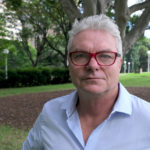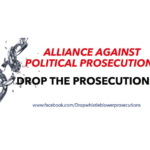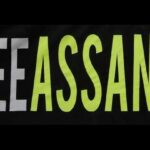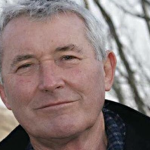Political Prosecutions: Abusing the Justice Process for Political Advantage
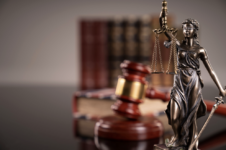
The former first minister of Scotland’s devolved parliament was served papers which read, ‘Her Majesty’s advocate v Alexander Elliot Salmond’.
It was a prosecution on 14 sexual offences alleged to have occurred whilst Mr Salmond, the former leader of the Scottish national party, was the first minister of Scotland.
The former first minister was arrested in 2019 and charged with two counts of attempted rape, nine counts of sexual assault, two of indecent assault and one of breaching the peace.
The prosecution was baseless, a farce – an abuse of the justice process, and the Scottish government ultimately conceded as much and paid Mr Salmond’s legal fees, amounting to more than 600,000 pounds.
A judicial review found that the complaints process was procedurally unfair, a political prosecution intended to bring Mr Salmond.
Here in Australia
Australian politics recently had a similar type of trial, but of a young political staffer, Bruce Lehrmann, who was accused of sexually assaulting Brittany Higgins inside Parliament House in Canberra.
The defendant pleaded not guilty, the jury was discharged due to impropriety on their part, and the prosecution was later withdrawn.
However, some are of the view the prosecution of Mr Lehrmann was as much to do with politics than anything else.
As Chief Justice, her Honour, Lucy McCallum remarked, it had become a matter with a momentum of its own, which indeed it had, involving power in politics and the culture within federal parliament.
The two coalition staff members, attached to the office of the defence industries minister, Linda Reynolds, had gone with others for a drink to a pub.
Afterwards, they went with two liberal staff members to another bar and then on leaving to go home called into parliament house so that Mr Lehrmann could collect some papers.
Ms Higgins’ cross-examination on the witness stand severely undermined the credibility of her version of the events. Indeed, the stark inconsistencies and improbabilities led many to believe she was lying about being sexually assaulted. Despite the enormous amount of favourable reporting towards the outspoken complainant in the months leading up to the trial, the jury could still not reach a unanimous verdict after days of deliberations.
Jury misconduct ultimately resulted in the trial being aborted. The misconduct involved one of the jury members bringing academic research papers regarding sexual assault into the jury room, in contravention of the judge’s repeated express directions not to consider information other than the evidence adduced at trial. The juror’s misconduct could not have been more brazen or egregious.
The ACT Director of Public Prosecutions later decided there would be no retrial as it was not in the public interest. His stated reason was to protect the complainant, but many believe it was due to the decimation of Ms Higgins’ credibility on the witness stand.
Mr Lehrmann’s career and reputation had long been destroyed by the time of the DPP’s decision – largely due to media reporting which urged the public to believe Ms Higgins, as well as a result of influential people such as our then Prime Minister Scott Morrison apologising in parliament for what Ms Higgins was supposedly subjected to in parliament house.
Some of the media reporting amounted to contempt of court in so far as it was directly against the judge’s directions and affected the integrity of the upcoming trial to such an extent the proceedings had to be vacated and relisted. No one was ever charged with contempt of court.
The treatment of Mr Lehrmann by the media and, indeed, by politicians is despite the fact our nation is meant to have a presumption of innocence – the presumption that a person is innocent until and unless he or she is proven to be guilty in a court or tribunal of law.
Under this doctrine, Mr Lehrmann is an innocent man.
Complainant makes a motza
Meanwhile, news media recently reported that the Albanese government has paid $3,000,000 to Brittany Higgins in a confidential settlement, after a single mediation session.
This is despite Mr Albanese long campaigning against secret payments, in any context.
If such a payment has, in fact, been made, a question to be asked is why such a large amount of hard-earned tax dollars was given despite the allegations never having been proven, and in the context of the complainant’s – to put it mildly – tenuous evidence on the witness stand.
To put it in context, no jurisdiction in Australia has a compensation scheme for those who are wrongly convicted, imprisoned and later exonerated. Rather, and unlike many jurisdictions in the United States, those proven by DNA or other evidence to be innocent need to commence civil proceedings, and payouts for such horrendous miscarriages of justice, as well as for atrocious, life-altering acts of police brutality, have historically fallen far short of the sum reportedly paid to Ms Higgins.
The complainant is also reported to have been paid for various media interviews, whilst becoming the ‘poster woman’ for the #Metoo movement in Australia.
Attorney-general of Australia faces sexual assault claim
Historical sexual assault allegations were published by the ABC in 2021 which led to revelations that a case had been opened by New South Wales police in 2020 after an allegation that a woman had been raped as a 16-year-old in 1988 in Sydney.
The alleged rapist was said to have been Australia’s attorney-general, Christian Porter, himself a young man at the time.
The alleged victim was shortly to advise NSW police she no longer wished to proceed with her allegation and within a relatively short time later committed suicide.
Labor leader also accused of sexual assault
A woman by the name of Kathy Sherriff accused Bill Shorten of sexually assaulting he at a Labor youth camp in 1986, when she was 16 years of age and Mr Shorten was 19.
The Victorian police investigated the matter, finding Mr Shorten had no case to answer.
None of the alleged perpetrators were prosecuted, but it is clear that they were adversely affected, some seeking psychological medical care.
Similarly, the alleged victims also found themselves adversely affected, one having committed suicide, another hospitalised with apparent psychological issues and one seemingly seeking help to proceed in an effort to be heard.
Back to the solicitor who became a Scottish legend
Freedom was the war cry of the Scottish knight, Sir William Wallace, who in the 13th century led Scotland in the first Scottish war of independence against England and king Edward 1 who had invaded Scotland in 1280. Sir William was not a king in name but was the guardian of the kingdom of Scotland.
The solicitor, Nicola Ferguson Sturgeon, first minister of Scotland is another Scottish warrior who cried freedom for her country. The first minister was not the prime minister by name, but certainly another guardian of Scotland.
Many SCL articles explain that there are 3 British legal jurisdictions today, one being England and Wales, one Scotland and the other, Northern Ireland. Well, so it was at the battle of Falkirk in 1298. English and Welsh soldiers fighting side by side during the invasion of Scotland.
Similar to being outnumbered by the English army at the battle of Stirling bridge in 1297, with Sir William routing the English army, this first minister of Scotland shows no fear of being vastly outnumbered by her English counterparts.
In 1332 Edward Baillol, soon to be made king of Scots, despite being Scottish himself, caused the second Scottish war of independence, by invading Scotland again, fighting alongside English and Welsh soldiers.
The parallel here is that the first minister’s first Scottish war of independence which ended in Scotland’s defeat in 2014, in relation to a referendum asking the question, should Scotland be an independent country, will not see a second war led by her into battle.
44.95% voted yes, with 55.05 voting no.
The first minister won’t get a chance for that second Scottish war of independence, as she has decided to abdicate.
The Scottish National Party leader abdicates as first minister
The second Scottish war of independence, called indyref2, was due to commence at the 2024 general election as a second de facto referendum for Scottish independence which was due to become official party policy, as a result of a Supreme court ruling that Holyrood (meaning Scottish parliament) was not permitted to hold a second referendum, unless approved by Westminster (meaning UK parliament)
Holyrood is an area in the capital city of Scotland, Edinburgh, which is the home of the Scottish parliament and the palace of Holyroodhouse is the official residence of King Charles 1, king of Britain, when staying in Scotland.
The Palace of Hollyroodhouse
Similar to Sir William Wallace, first minister, Nicola Sturgeon was the glue which held the pro-independence citizens together and if truth be told, today it appears the majority of Scottish citizens.
British labour party spokesperson suggested that the first minister’s resignation will enable labour to win back as many as 20 seats giving Sir Keith Starmer, (before this job was a human rights defence lawyer) a chance of winning the 2024 British general election.
Indeed, many of her SNP colleagues are so concerned about the loss of such a charismatic leader, that arguments have started in relation to cancelling next month’s special SNP conference which had been called to plan the campaign for indyref2.
Who are the Scottish National Party?
As the name suggests, it is a national and socialist democratic party and is the biggest political party in Scotland campaigning for Scottish independence from Britain, where it retains the vast majority of Scottish seats in the house of commons at Westminster and joining the European union.
It doesn’t though, hold a majority of seats in the Scottish parliament.
The Scottish Parliament
With the unification of the national party of Scotland and the Scottish party in 1934, the Scottish national party formed the Scottish parliament by way of devolution in 1999.
Devolution being the UK central government transferring many powers to a local government (in this case Scotland), essentially decentralisation or home rule.
This has also occurred in Wales and Northern Ireland, aka the Welsh Senedd and the Northern Ireland assembly.
The popularity of the first minister
Following the abject failure at indyref1, Alex Salmond, then first minister, resigned leaving the door open for Nicola Sturgeon to become leader of the Scottish government and led the SNP to its best ever results at the 2015 UK general election.
This incredible change of fortune saw the party improve from six seats in the house of commons to 56 seats, ending the dominance of the previous 51 years of the Scottish labour party and whilst the following years had its fair share of ups and downs, ended in 2022 with winning a record number of councillors.
Brexit and the Scottish freedom fighter
Against Brexit from the very beginning, the freedom fighter foresaw what leaving the European union (EU) would do and on reflection of the damage Brexit had caused, rallied her SNP troops with a stern warning in November 2021:
“[The UK government] by making us poorer, they’ll say we can’t afford to be independent. By cutting our trade with the EU, they’ll say we’re too dependent on the rest of the UK.
By causing our working population to fall, they’ll say the country is ageing too fast.”
The first minister had done her homework. Independence works, as proved by many countries, including Austria, Norway, Finland, Denmark and Ireland.
Austria was made a federal state of Germany, when invaded in 1938 and freed after world war 11 by the allied powers. Therefore, not quite the same as Scotland’s dilemma.
Norway is another tenuous comparison with Scotland in relation to independence, as indeed is Denmark. However, there is a comparison with its oil reserves. A decade ago, the Norwegian oil wealth fund had reached a surplus of US$828 billion.
Today, Norway’s oil fund, known as the government pension fund global, is worth US$1.19 trillion in assets and holds 1.4% of all the world’s listed companies, making it among the world’s largest sovereign wealth funds.
Ireland, though, is the closest comparison to Scotland.
Many countries, including parts of England, who for nearly a century was ruled by Vikings (Norsemen) have had complex unions between countries, so independence has been sought by many countries.
One such union was formed in 1397, when Norway, Sweden and Denmark were ruled over by one monarch, starting with King Erik VII.
So, as was said earlier, the Scottish freedom fighter had done her homework.
However, the bit about the UK trying to make Scotland poorer is a bit rich (excuse the pun), as
Scotland’s budget was at a record high, with the UK furlough scheme saving close to a million jobs.
Freedom was still the cry of the first minister, despite this.
65 countries have already gained independence from the British empire
Australia, New Zealand , Canada, Pakistan, South Africa and Israel are amongst the 65 countries which have so far gained independence from the United Kingdom.
Why then is Scotland having such a hard time in gaining its independence?
Why does the UK want to keep Scotland?
Well, there are several theories why the UK may want to retain Scotland.
- Scotland has vast oil and gas reserves from the North sea, a significant percentage of which goes to Westminster. Scotland’s energy resources are responsible for 25% of the UK’s corporation tax.
- To date, it has contributed to the UK exchequer in excess of 300 billion pounds.
- The North sea has prosperous fishing grounds.
- Scotland will be one of Europe’s richest countries as a result of not having to share the North sea oil and gas reserves.
- Remaining oil reserves in the North sea is estimated at over one trillion pounds, which if Scotland becomes independent retains 90% of the tax revenue, which would enable Scotland to establish a national wealth fund, like Norway and other countries.
- The office for budget responsibility forecast oil and gas revenue will raise 7.8 billion pounds for 2022-23. Last year it was 3.1 billion pounds and the year before that 400 million pounds.
The UK block grant funding from the UK to Scotland for the years 2022 to 2025 is 41 billion pounds.
Block grant funding is what the UK provide to enable Scottish authorities to manage public services, such as health, justice, education and transport.
Covid-19
Whilst the Scottish government white paper on the impact of covid-19 makes for sombre reading, trust in the Scottish government is relatively high, with its international reputation increasing, predominantly due to the esteem in which Nicola Sturgeon is held.
This is borne out by 4 in 5 Scottish citizens rating the first minister’s handling of the covid-19 pandemic as high as 78%, compared to the UK pm’s handling as low as 34%, with 82% of Scottish citizens saying that the messaging about what to do, etc is clear and precise.
A herald Scotland newspaper poll showed that the first minister had an overall rating of 88% against the British prime minister, Boris Johnson at 6%, in relation to whom between them handled the pandemic better. (maybe a little more biased than the figures above)
This was despite Sir Keith Starmer, the labour opposition leader, attempting to compromise the first minister’s efforts, supported by YouGov tracker data.
What has the first minister done for Scotland?
Nicola Sturgeon, self-described as a lifelong feminist, by breaking through the glass ceiling with three decades in politics, paved the way for equal opportunity for female politicians.
For the women in the street, the first minister established a formal women’s health plan and formed the workplace equality fund focussing on gender, race, age and disability.
Ms Sturgeon also changed the law to ensure coercive and controlling acts in relation to domestic violence, were able to be prosecuted, as it is in Australia amongst many other jurisdictions.
The SNP leader championed gender reforms to enable citizens the ability to change their legally recognised gender more easily and opposed the Conservative party’s rape clause which caused women to prove the rape so that they could qualify for financial support.
These causes did not only impact Scottish women but British women throughout all of Britain.
She has been first minister for close to 8 years and prior to this, deputy leader of the SNP for another 8 years.
The first minister, a qualified lawyer, led the SNP to three British general elections and two Holyrood elections.
An attack on Scottish democratic rights
The UK government has blocked the Scottish referendum bill. It was able to legally accomplish this by virtue of the Scotland act 1998, which contains precisely what the legislative powers of the Scottish parliament can and cannot do.
The legislation makes clear that the Scottish government cannot pass legislation which relates to various reserved matters, such as the union of the kingdoms of Scotland and England, which the Supreme court determined it did, in that a referendum intended to end such a union.
The judgment was handed down in November 2020.
Another attack, this time on the gender recognition reform (Scotland) bill:
Human rights of those desiring to change their gender more easily has seen the UK parliament, for the first time blocking Holyrood legislation, using a section 35 order in January 2023, which essentially stops the bill proceeding to royal assent.
The bill is aligned with 30 countries which adopted it, including Australia, New Zealand, Canada, many European countries and some states in America, with countless human rights organisations stating that the section 35 action is not only an attack on the democratically elected Scottish government, but democracy in general.
The United Nations and the council of Europe had welcomed its passing in December 2022.
The Scottish government intends to fight the decision, but without its acknowledged warrior, Nicola Sturgeon.
What comes next for the Scottish warrior?
Fulfilling the promise is what comes next for the former first minister.
The promise is just that, Scotland’s promise to all children in care, that it would from 2020 until 2030 work to ensure all care experienced children as they are called, will be able to grow up safe, loved and respected and be supported to stay with their families where that’s possible.
Nicola Ferguson Sturgeon has pledged to a lifelong commitment to this mission.
Another commitment which she made is to strenuously advocate (remember she is a lawyer) for criminal justice reforms around improving access to justice for victims of sexual offences.

